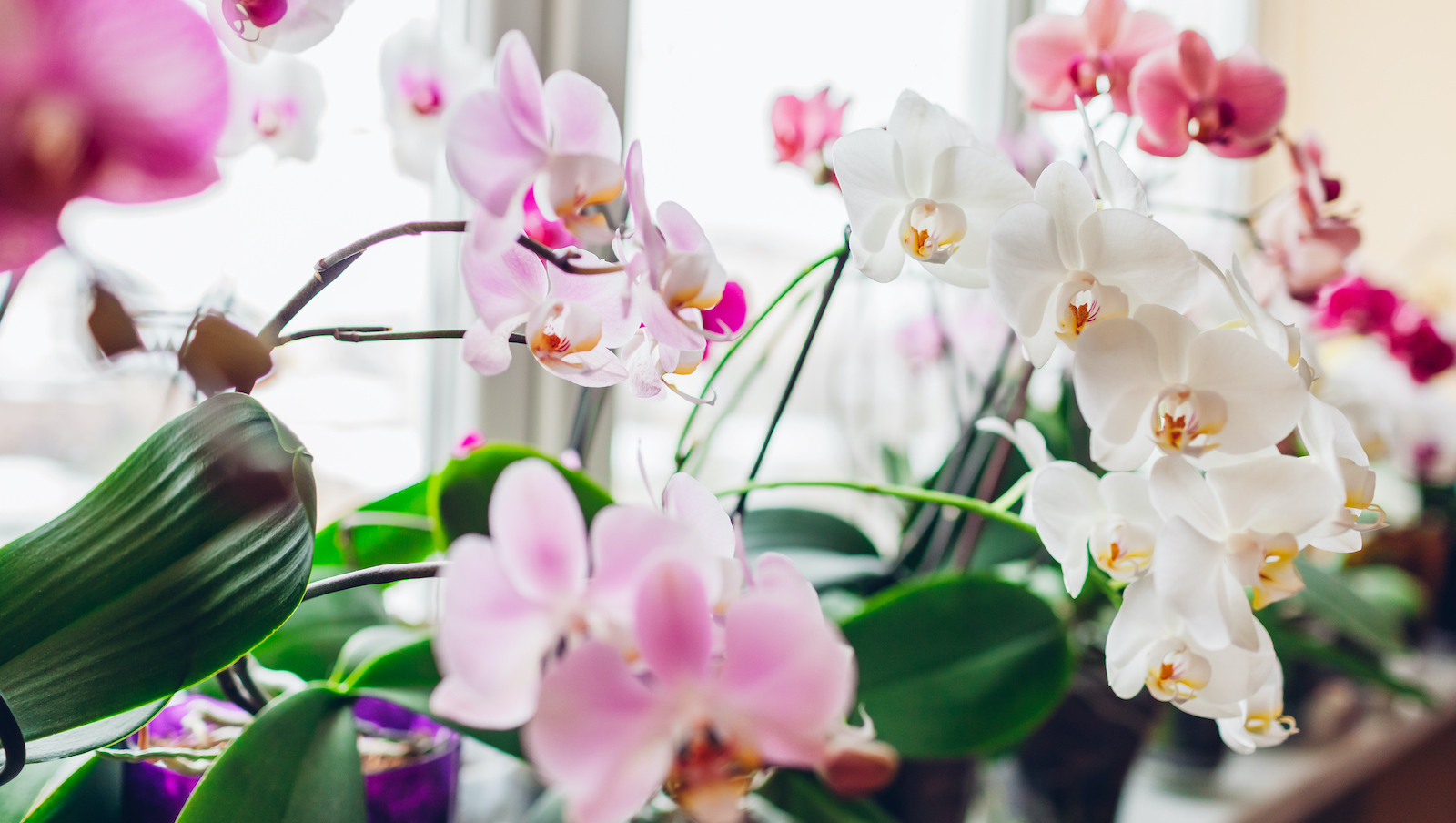

A plant parent like yourself might be wondering how often to water an orchid, and it's a fair question. Are these gorgeous blooms on the needier end of the hydration spectrum, or should they be watered sparingly?
The irresistible pink petals (a personal favorite) are difficult to resist but orchids can be tricky to care for, with their leaves prone to dropping. However, with our plants experts on hand for H20 tips and more, it'll soon be a breeze.
To keep the flora alive and well, we've asked our green-thumbed pros how these beloved but delicate indoor plants should be treated. We're spilling the tea on their watering needs and other important care tid bits.
We asked the experts how often to water an orchid
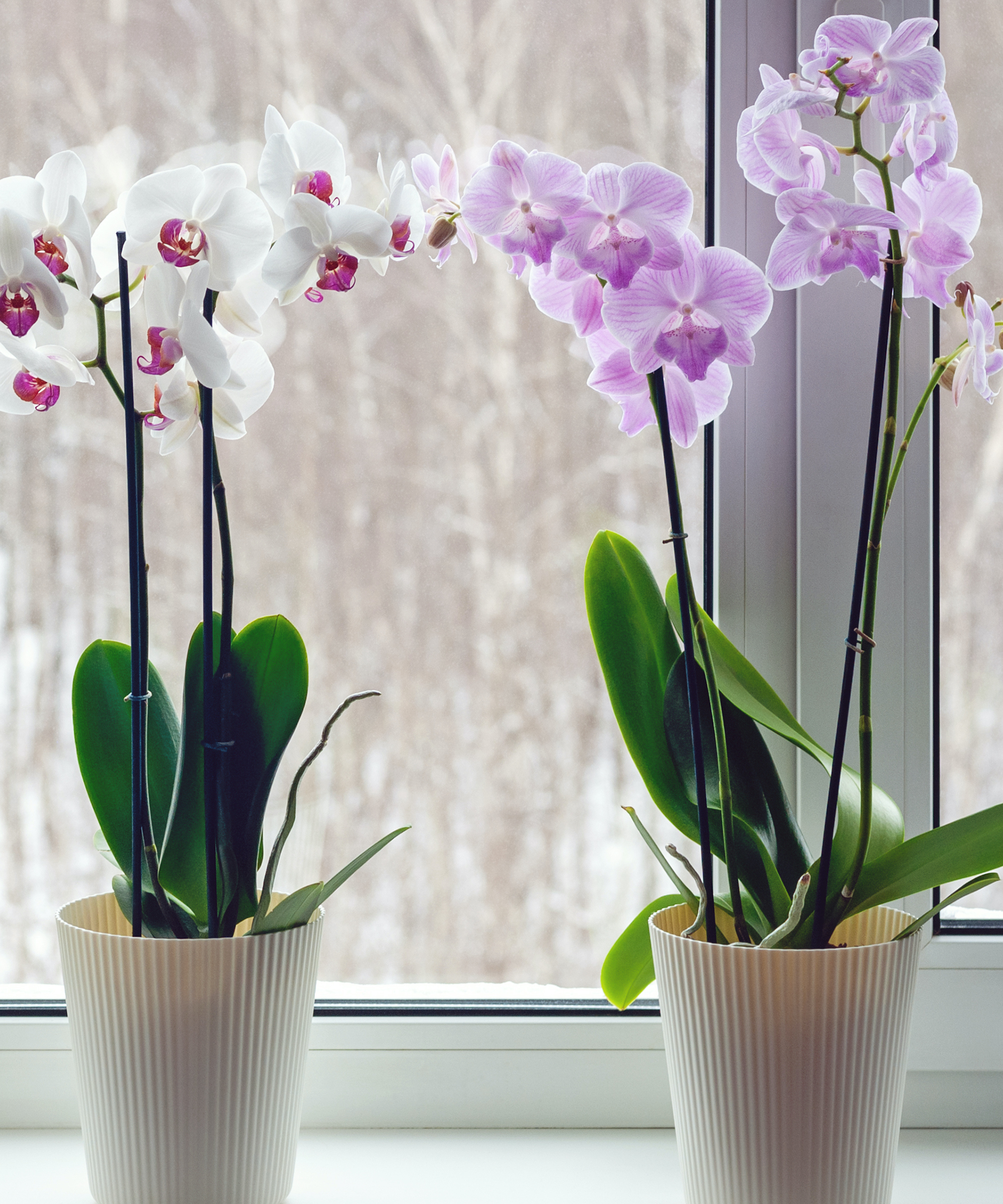
When it comes to H20, orchids don't need frequent baths. When you consider how often to water succulents, orchids are on the same playing field.
"Phalaenopsis orchids are the most common orchids grown as houseplants, and you should allow the soil to dry out between waterings," says Paris Lalicata, a community associate and plant education director at The Sill. "If you give an orchid bright light in a window you may see yourself watering it weekly to every 10 days."
When gardening in an apartment, or outdoors, it's important to be vigilant about red flags. They're a plant's way of telling you they could use a sip of something cold.
"Generally, orchids' leaves will start to wrinkle when they are thirsty," Paris adds. "If they go too long without water, flowers will start to drop prematurely, and the leaves can even turn a little bit purple when dehydrated and under bright light conditions."
When caring for houseplants, overwatering is an issue most of us experience.
"Yellowing or dropping leaves can suggest overwatering or inadequate air circulation," says Gene Caballero, co-founder of GreenPal. "Regular fertilization with orchid-specific, water-soluble fertilizer helps maintain their health."
(Speaking of which, TPS Nutrients Orchid Plant Food for All Orchids on Amazon is on sale and received 4.5/5 stars.)
Now that the water situation is under control, there are a few other things to note: keep your orchids in medium-bright indirect light to a few hours of morning direct sun. Try to place them in an east or west window.
"Choose a spot that is also warm, anywhere between 65-75° Fahrenheit and that has higher humidity, preferably a minimum of 30% relative humidity but higher will make them happier," Paris adds.

Paris is a community associate and plant education director at The Sill, which was founded on the notion that plants make us happier, healthier humans. The self-taught expert has over 200 plants in her own collection, so she's the perfect go-to for those who need assistance with their plants.

Gene Caballero is co-founder of Green Pal, a platform connecting customers to lawn care experts in their area throughout the United States. With such diverse areas to cover, Gene is well-versed in specific greenery needs for various environments.
What to shop
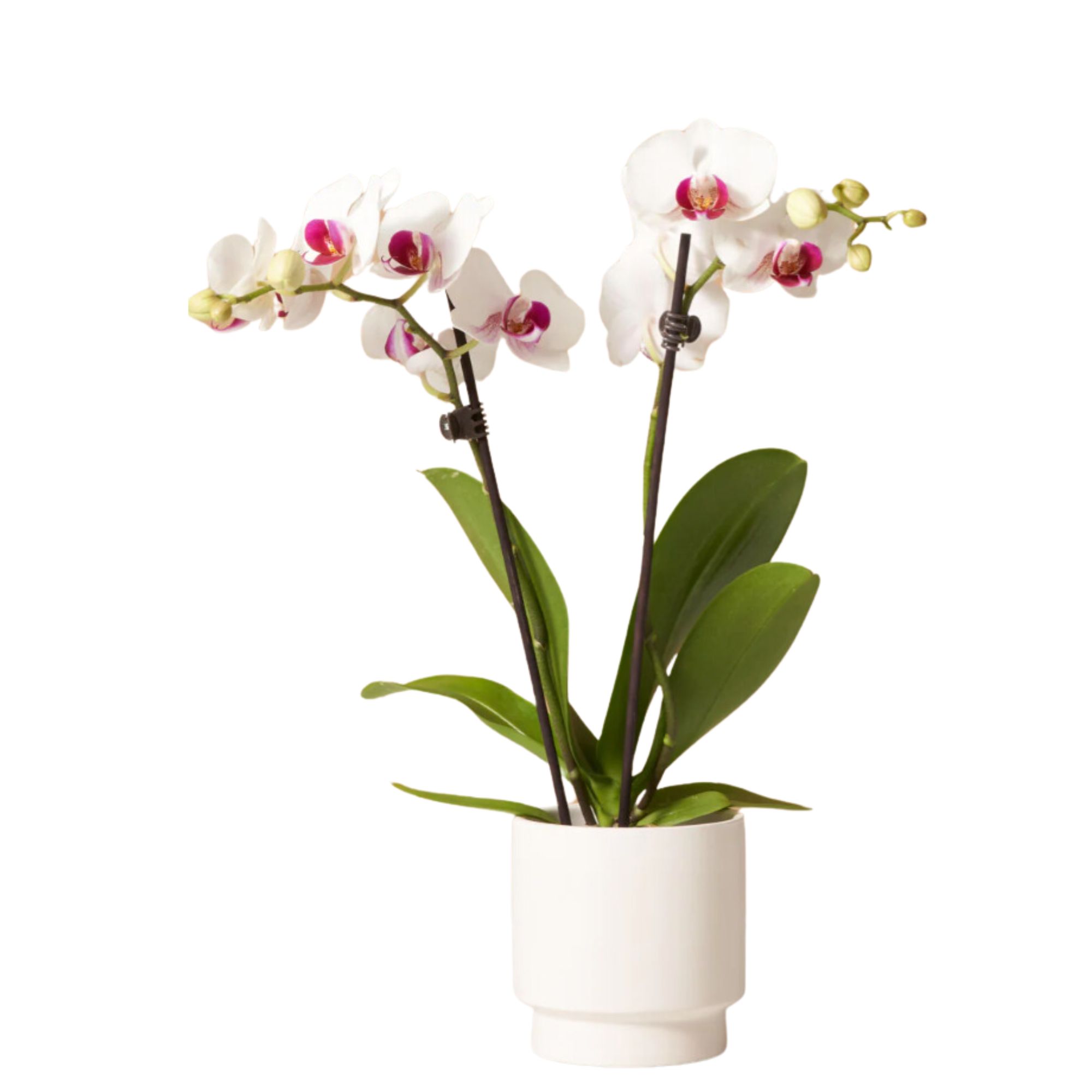
Price: $68
Pot dimensions (in.): 5
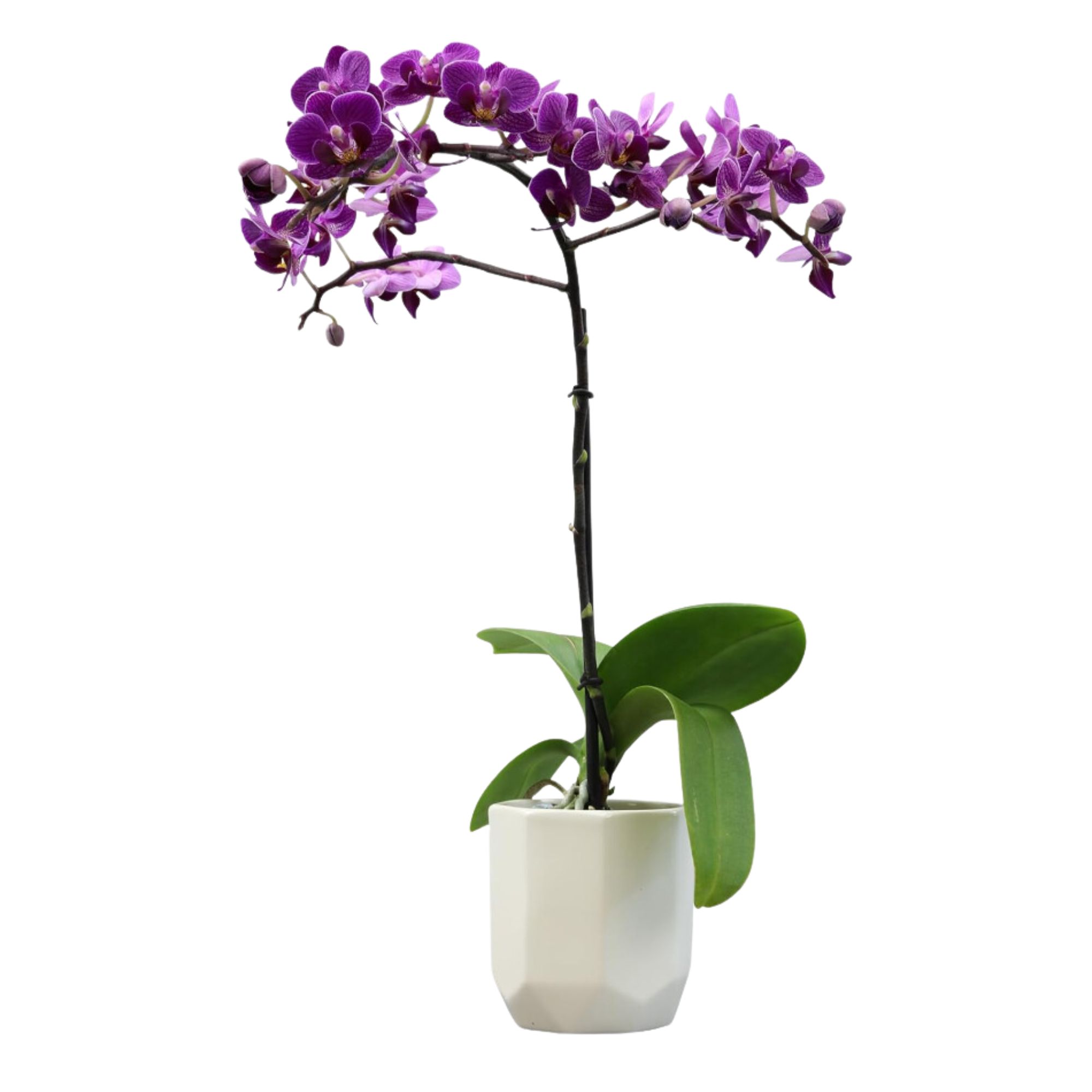
Price: $30
Pot dimensions (in.): 3.5
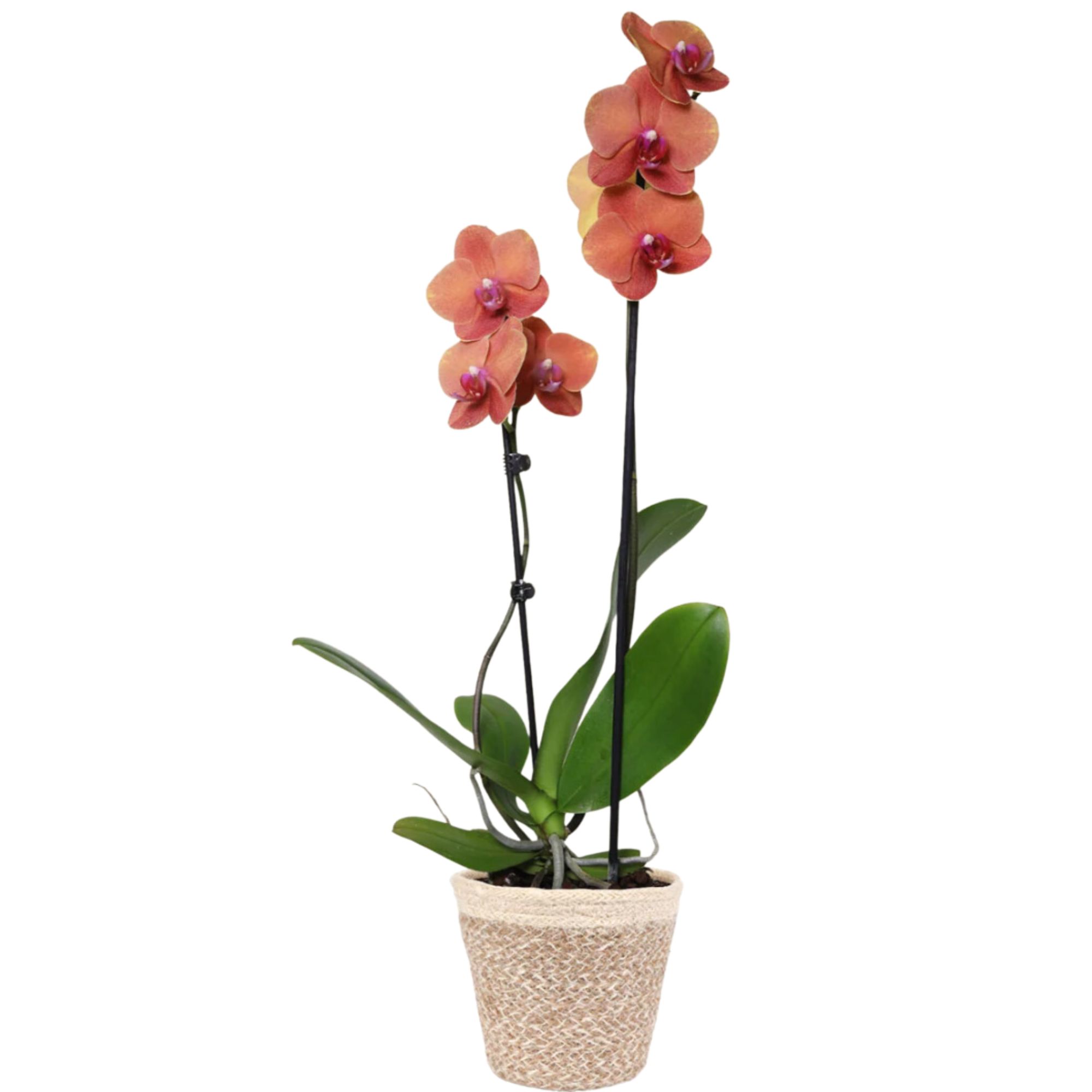
Price: $76
Pot dimensions (in.): 5
Can't get enough plants? We're guilty of the same thing! We've rounded up 12 easy house plants that are low-maintenance, forgiving, wonderfully indestructible, and beautiful additions to your bookshelf wealth.
Join our newsletter
Get small space home decor ideas, celeb inspiration, DIY tips and more, straight to your inbox!

Pleasure to meet you! I'm Danielle, a content editor at Real Homes who loves scoping out interior trends. I've specialized in lifestyle writing and editing for 10 years with a focus on events, food, and books, among other areas. When I'm not working, I'm usually cooking, reading, or searching for a new project for my apartment.
-
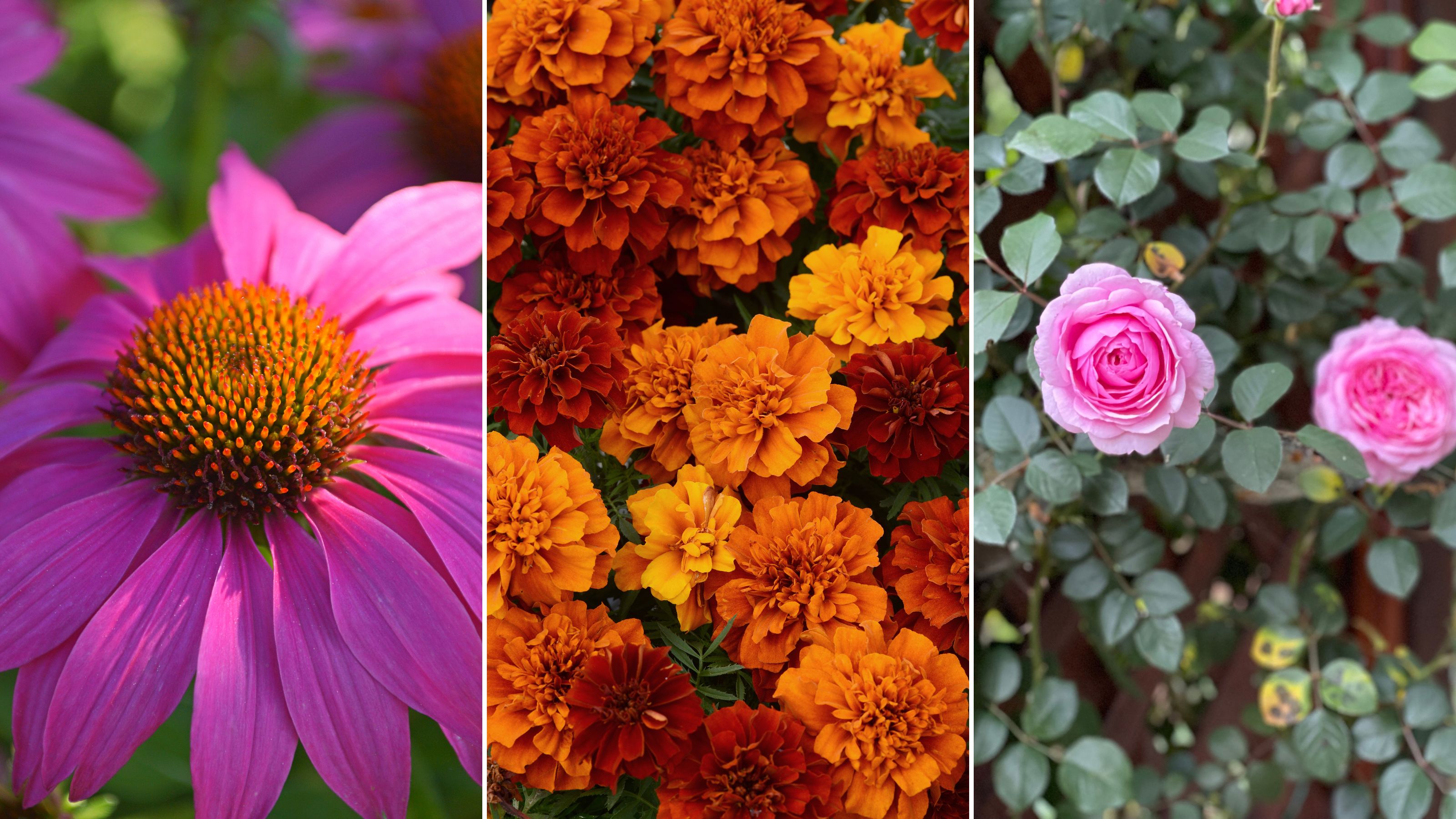 The 7 flowers to plant in August, according to gardening gurus
The 7 flowers to plant in August, according to gardening gurusKnowing what flowers to plant in August isn't always so clear-cut. But that's why we called in help from pro planters — here's what they said to pot.
By Becks Shepherd
-
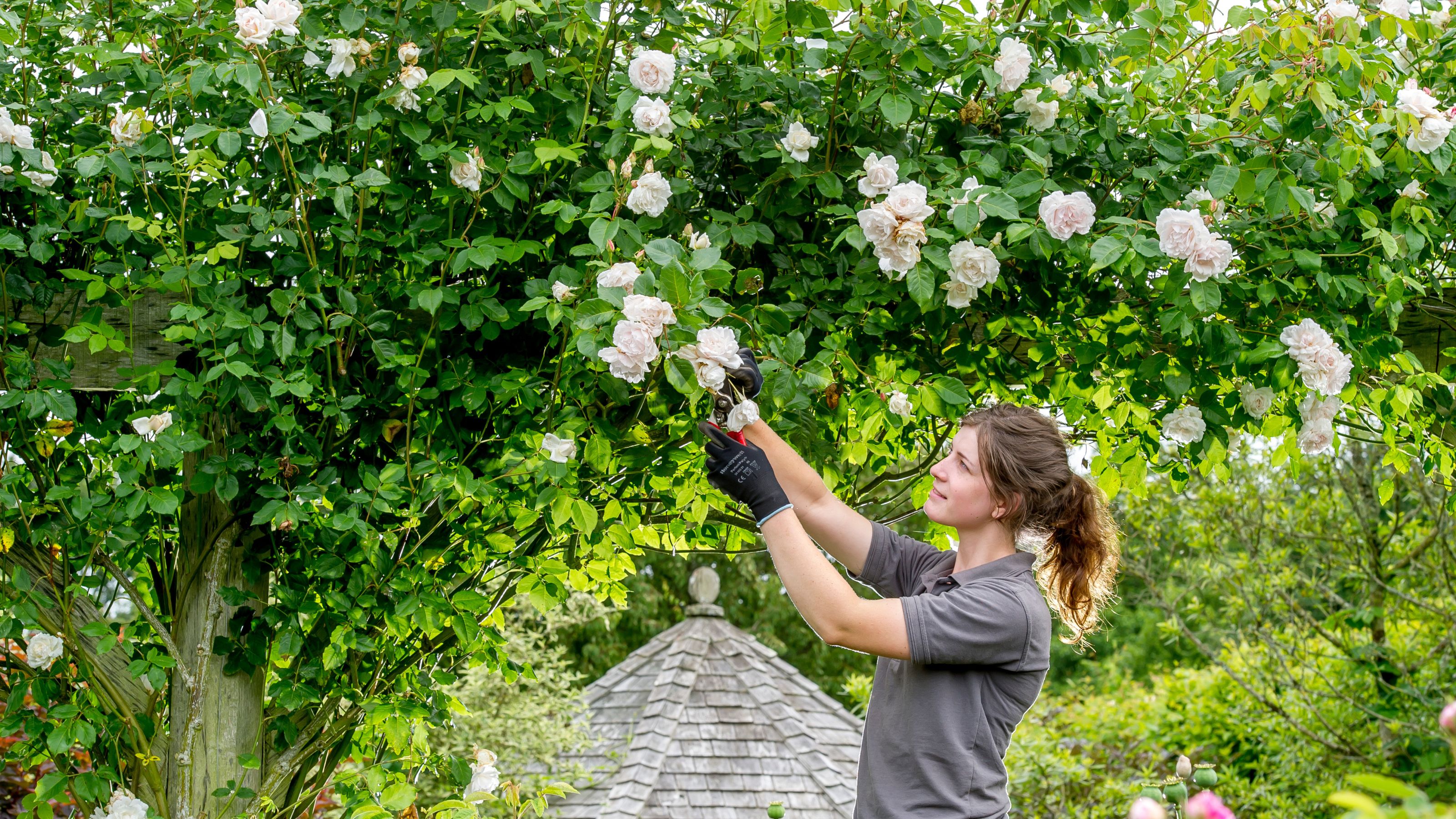 The 7 plants to prune in August — and the 2 pieces of greenery you shouldn't touch
The 7 plants to prune in August — and the 2 pieces of greenery you shouldn't touchWondering what plants to prune in August? We asked a gardening expert for their top tips plus info on what pieces of greenery to avoid pruning this month
By Becks Shepherd
-
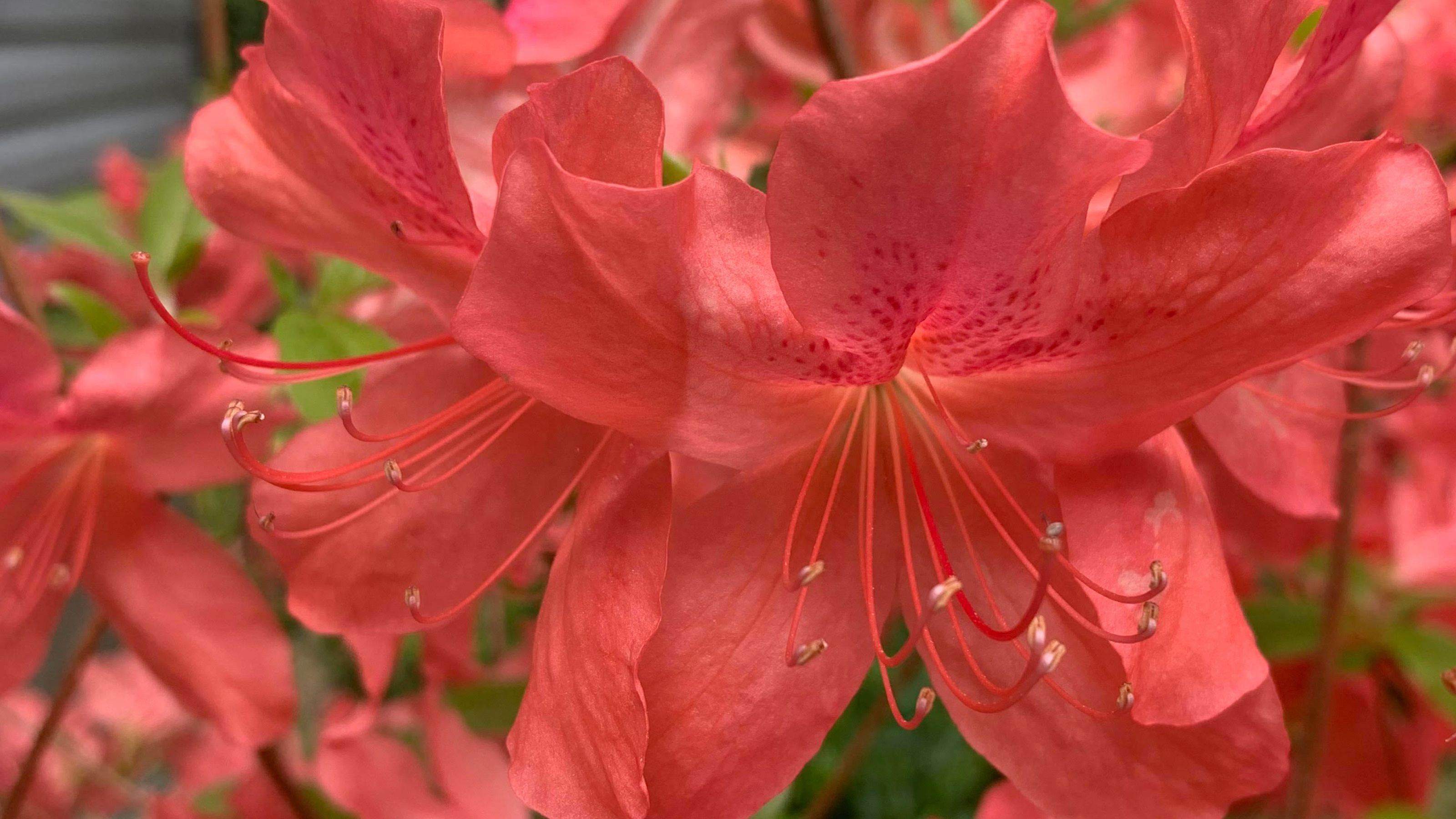 Do you need to deadhead azaleas? Top tips for pruning these flowering shrubs
Do you need to deadhead azaleas? Top tips for pruning these flowering shrubsWondering whether you need to deadhead azaleas? We asked a gardening expert for their top tips for looking after these blooms
By Becks Shepherd
-
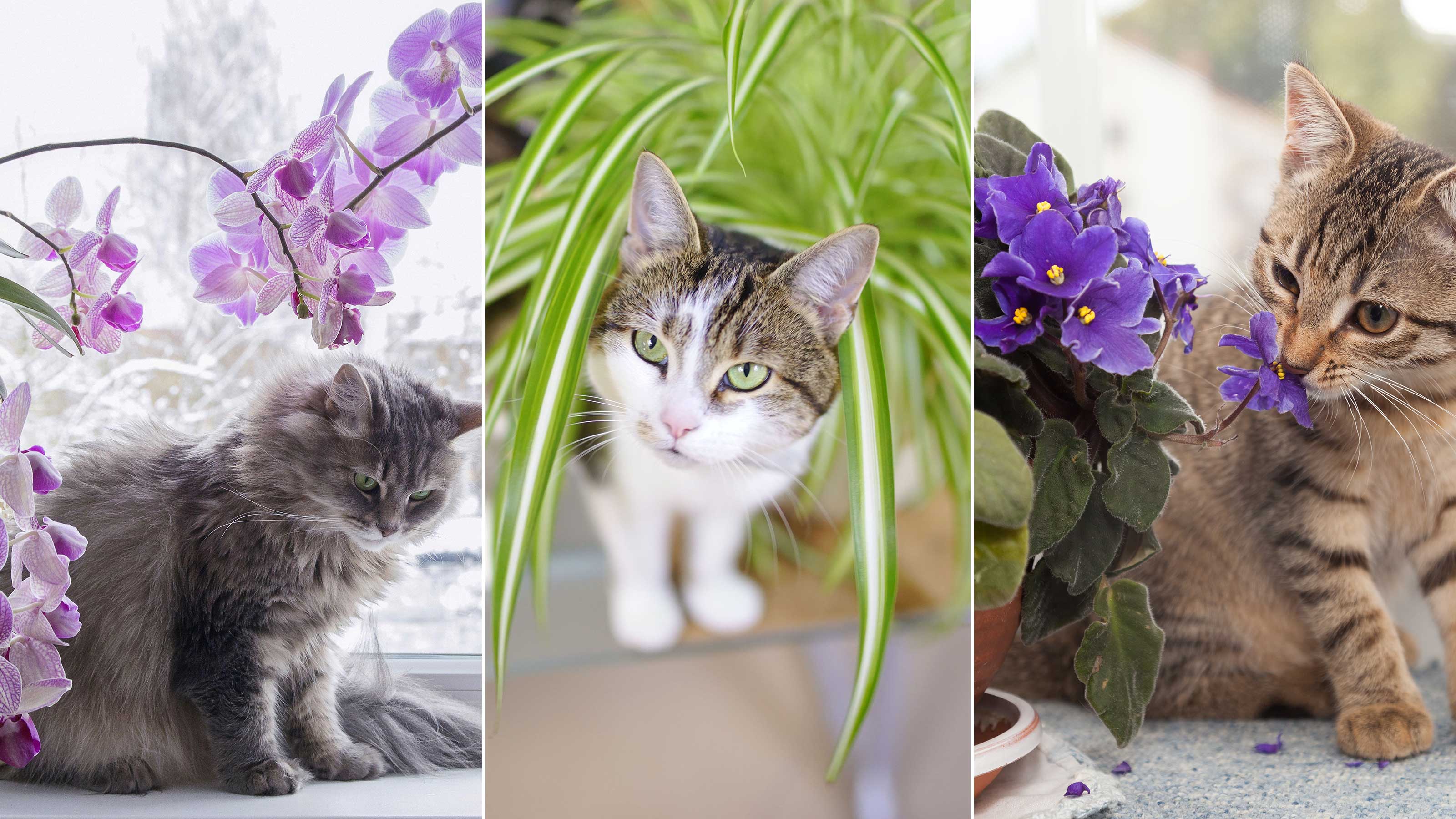 10 houseplants that are not toxic to cats — plus expert advice on keeping your pets safe
10 houseplants that are not toxic to cats — plus expert advice on keeping your pets safeKeep your four-legged companion safe by choosing these houseplants that are not toxic to cats, and learning the dangers of those that are, according to veterinary experts
By Holly Crossley
-
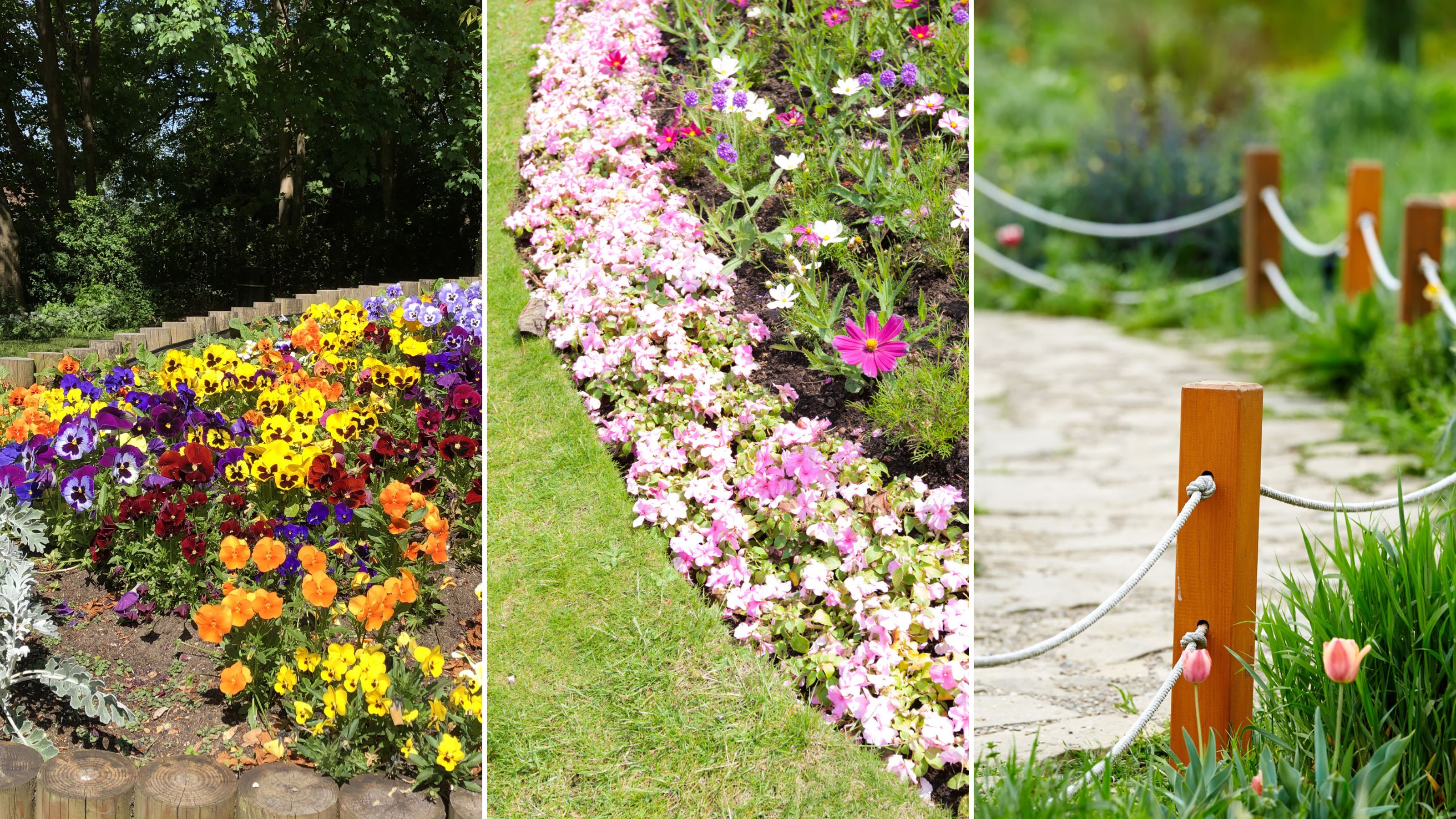 14 lawn edging ideas that will add definition and style to your backyard
14 lawn edging ideas that will add definition and style to your backyardWant to neaten up your lawn with lawn edging ideas? From fresh flowers to laidback bricks, we've scouted out materials and styles that look brilliant
By Eve Smallman
-
 Which houseplants are toxic to dogs? Vet experts pinpoint problem plants and solutions
Which houseplants are toxic to dogs? Vet experts pinpoint problem plants and solutionsWondering Which houseplants are toxic to dogs? We spoke to vets about the problematic leafy greens, what they trigger in dogs, and how to find a solution
By Danielle Valente
-
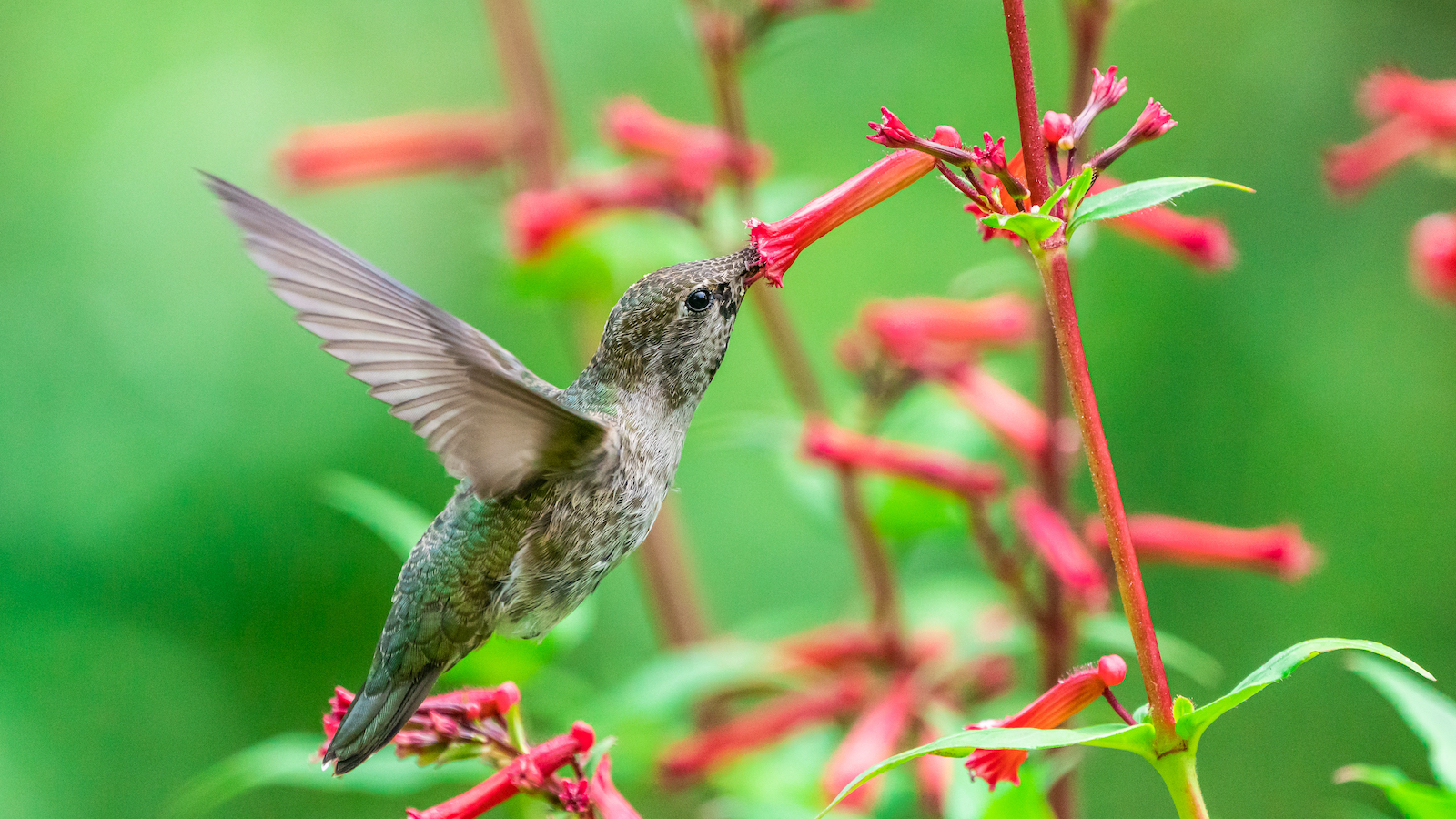 How to attract hummingbirds to your backyard, according to ornithologists
How to attract hummingbirds to your backyard, according to ornithologistsTrying to figure out How to attract hummingbirds to your backyard? These ornithologist-backed tips will guarantee you visitors in no time
By Danielle Valente
-
 How to make indoor plant leaves shiny, according to green-thumbed experts
How to make indoor plant leaves shiny, according to green-thumbed expertsLearning how to make indoor plant leaves shiny seems trivial, but this is not just about aesthetics. Here's how to clean them properly, and why you need to do it, according to pros
By Danielle Valente